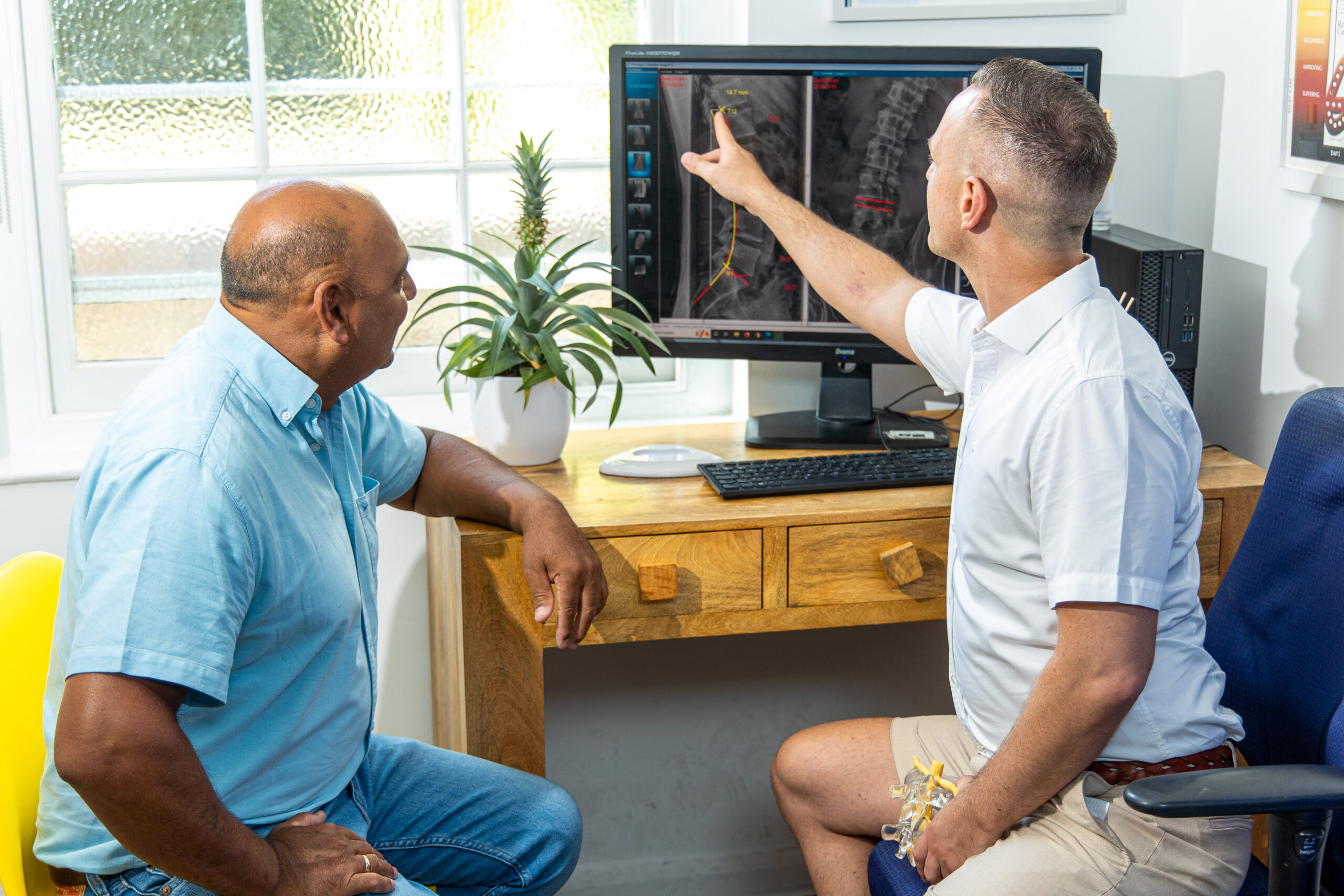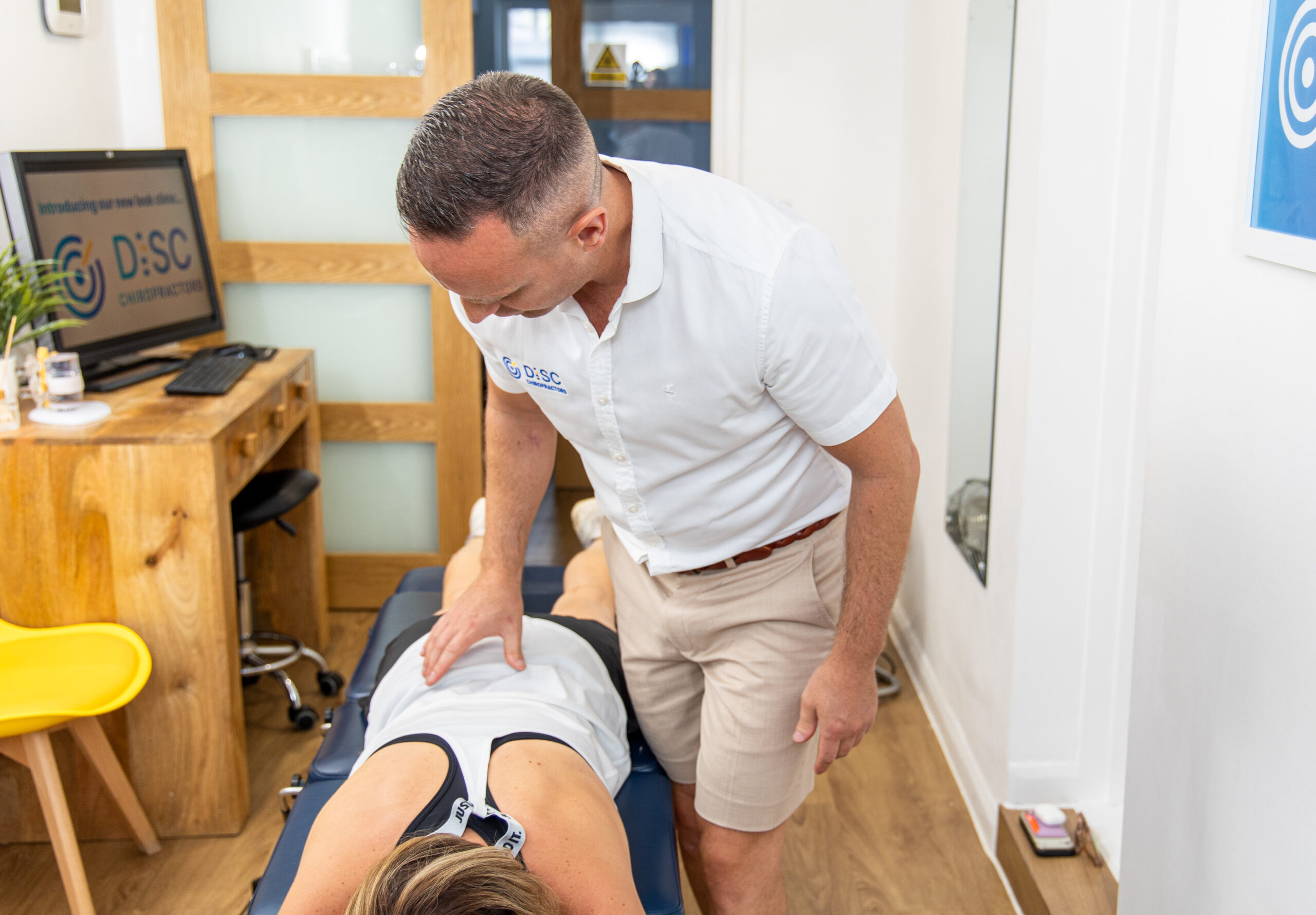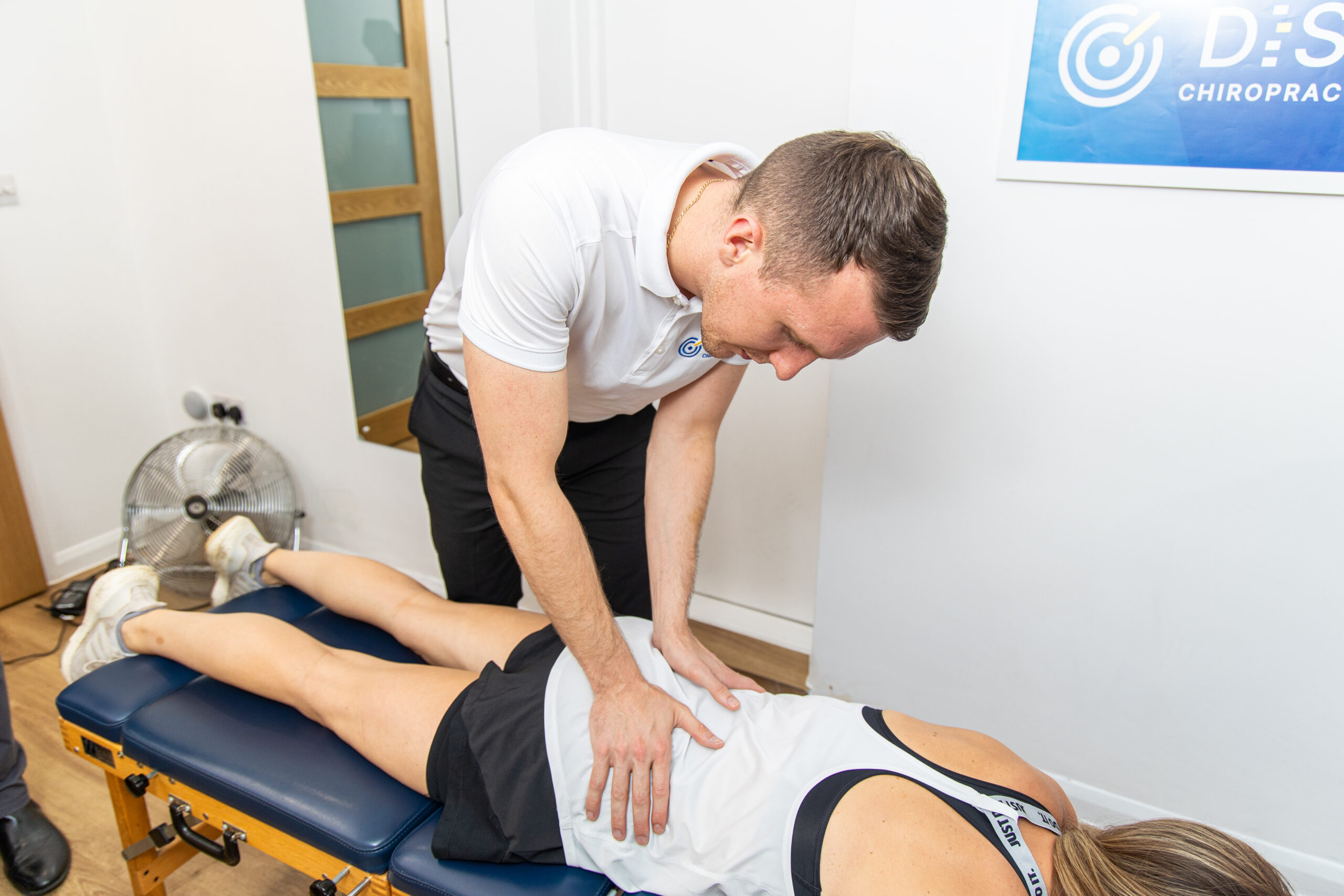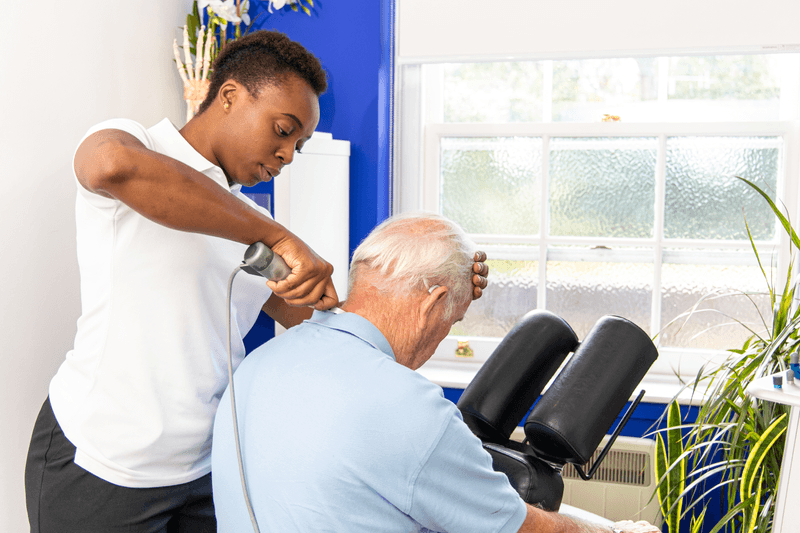Slipped Disc

“While discs are attributed to perhaps 10% of ALL back pain, when you consider back pain to be severe enough to seek out care, then we see the disc is causal for at least 50% of that back pain.”
Michael Adams PhD
What Is A Slipped Disc?
Slipped disc is a common term that covers many different injuries and pathological processes involving the spacers in the spine.
The segments or vertebrae of our spine are spaced by an intervertebral disc (IVD); its job is to provide mobility and act like a shock absorber via its gel like centre, spreading load throughout the spine.
There are in fact multiple ways in which a disc can sustain damage which can result in pain, but the most significant known as a Disc Herniation.
This is when the internal portion of the disc (nucleus) tears through its external bindings (annulus) and presses against the adjacent nerve irritating it, as in the case of trapped nerves such as Sciatica.
However, more recently the scientific community is realising that there are many more subtle ways in which the IVD can become damaged, inflamed and subsequently generating pain.
TOP 8 PAIN GENERATING DISC INJURIES
(DESPITE BEING MOSTLY DISREGARDED BY MEDICAL MANAGEMENT!!!)

Disc Herniation

Internal Disc Disruption

Degenerative Disc Disease

Circumferential Fissure

Annular tears / Disc Protrusion

Discogenic Pain

Inflammatory Disc Disease

Bulging Disc
How common is a slipped disc
This could mean that as many as 13% of the UK population (6.8 milllion people) are suffering from an active disc injury every year.
However, if we consider that by the time many patients get to us, they are years down the line from their first back injury. There is potential for multiple slipped disc morphing into degenerative disc conditions which are estimated to be responsible for an additional 40% of back pain patients.
Therefore, with 2/3rds of Back pain patients having potential links with the Intervertebral Discs its easy to see why we at The DISC Chiropractors have spent most of the last 5 years concentrating on understanding and specialising in Disc Injuries.
So much so that we are at the forefront of the understanding of complex newly coined terms as Inflammatory Disc Disease & Discogenic Pain that are still years away from being fully comprehended.

While discs are attributed to perhaps 10% of ALL back pain, when you consider back pain to be severe enough to seek out care, then we see the disc is causal for at least 50% of that back pain
Michael Adams PhD
Brinjikji: Studied 3000+ patients with back pain & found.
%
DISC Protrusion
%
DISC Degeneration
%
DISC Bulges
%
DISC Extrusion
%
DISC Annular Tear
All of these have the potential to be pain generators:
*Try our MRI review service if you feel short changed by your MRI findings and would like a second opinion.*
Slipped disc symptoms:
In an acute disc injury, pain is often focused on a specific moment of bending, lifting, or twisting. Patients tend to be able to give us a specific discription of when their back first went, as tearing the annual fibres usually gives you a degree of lower back muscle spasm within hours if not immediately, as the body aims to defend itself.
Alongside back spasms, the most likely symptom from a slipped disc is known as a radiculopathy, or trapped nerve.
Essentially this is when the toxic internal disc material either touches and irritates the outside nerves, or when the physical pressure of the protrusion physically squeezes a nerve.
Nerve irritation can involve anything from sharp pain to mild numbness or tingling. The most common nerve to be irritated is the Sciatic Nerve which runs down the back of the leg, but we also can suffer from a femoral radiculopathy in the front of the leg and of course the neck and mid back have their own list of nerves to trap.

Some common signs of disc related pain:

Pain at start of motion

Pain on movement

Pain bending forward

Pain in the morning

Pain getting from sitting to standing

Pain when coughing or sneezing

Pain is continuous – levels can vary but never goes away
Slipped disc treatment?
The good news is most Disc Injuries are treatable, with only a very small percentage requiring surgery.
In fact, it’s in the actual NHS guidelines that all patients with a slipped discs should try manual therapy before resorting to medication or surgery.
Yet there are far too many cases that fall between the limits of a standard therapist and the surgical knife.
At DISC we have spent years researching and fine tuning our protocols so that we have protocols that are above and beyond the abilities of an average clinic.
Our clinic has advanced cutting-edge equipment specially designed to deal with disc herniations and impinged nerves.
Our Spinal Decompression Tables provide the lion’s share of the energy. Its gentle wave like traction is required to flood a damaged disc with the nutrients it needs for healing whilst vacuuming in bulges and herniations.
This is combined with instrument assisted adjusting which adds a conservative ability to mobilise joints without the need to aggressively twist or click the spine to achieve the required mobility.
Our flagship Decompression Protocol delivers on average an 80% improvement in just 9 weeks once patients are accepted and complete the course.


To find out about some of the other conditions we treat click link
Contact Us
If you would like to find out what we could do to help your Slipped Disc, please click the icon below to book a thorough consultation to evaluate your case. Our organise a free chat to one of our clinicians… We love chatting about all things DISC related.
